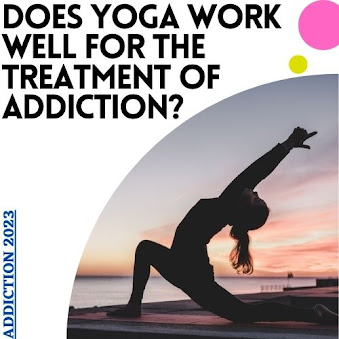Does Yoga work well for the Treatment of Addiction?

There are several applications for yoga in rehabilitation . Yoga has helped people with mental disabilities by improving their capacity as well as physical coordination and social skills. Subjects with physical disabilities who practiced vigorous yoga had some of their practical competence restored. Along with helping people become stronger and more flexible, yoga provides many health benefits. Yoga will typically be beneficial in conjunction with a customized programme, so if you are a dedicated yogi, this is frequently fantastic news because you do not have to forgo one for the other! • Increased flexibility • Cardio and circulatory health • Protection from injury • Maintaining a balanced metabolism • Increased muscle strength and tone • Improved respiration, energy, and vitality • ...
.jpg)
